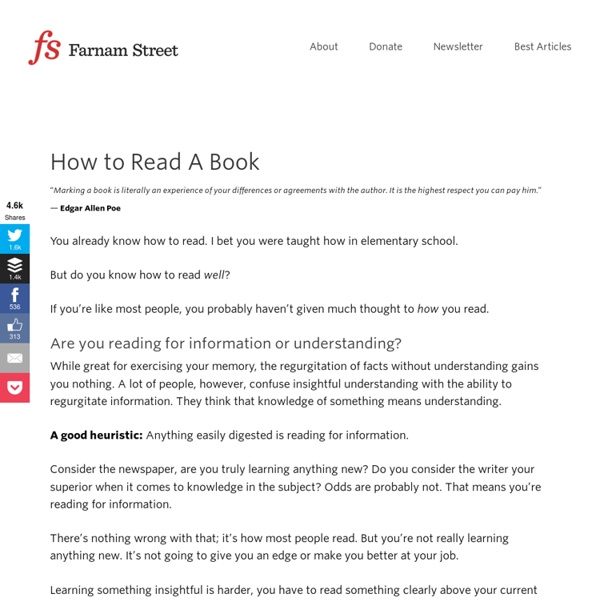How to Read A Book

Seven Tips From Ernest Hemingway on How to Write Fiction
Image by Lloyd Arnold via Wikimedia Commons Before he was a big game hunter, before he was a deep-sea fisherman, Ernest Hemingway was a craftsman who would rise very early in the morning and write. His best stories are masterpieces of the modern era, and his prose style is one of the most influential of the 20th century. Hemingway never wrote a treatise on the art of writing fiction. He did, however, leave behind a great many passages in letters, articles and books with opinions and advice on writing. 1: To get started, write one true sentence. Hemingway had a simple trick for overcoming writer's block. Sometimes when I was starting a new story and I could not get it going, I would sit in front of the fire and squeeze the peel of the little oranges into the edge of the flame and watch the sputter of blue that they made. 2: Always stop for the day while you still know what will happen next. There is a difference between stopping and foundering. 5: Don't describe an emotion--make it.
stephen-kings-top-20-rules-for-writers
Image by the USO, via Flickr Commons In one of my favorite Stephen King interviews, for The Atlantic, he talks at length about the vital importance of a good opening line. “There are all sorts of theories,” he says, “it’s a tricky thing.” We’ve talked so much about the reader, but you can’t forget that the opening line is important to the writer, too. This is excellent advice. Revision in the second draft, “one of them, anyway,” may “necessitate some big changes” says King in his 2000 memoir slash writing guide On Writing. 1. 2. 3. 4. 5. 6. 7. 8. 9. 10. 11. 12. 13. 14. 15. 16. 17. 18. 19. 20. See a fuller exposition of King’s writing wisdom at Barnes & Noble’s blog. Related Content: Stephen King Creates a List of 96 Books for Aspiring Writers to Read Stephen King Writes A Letter to His 16-Year-Old Self: “Stay Away from Recreational Drugs” Ray Bradbury Offers 12 Essential Writing Tips and Explains Why Literature Saves Civilization Kurt Vonnegut’s Eight Tips on How to Write a Good Short Story
Related:
Related:



